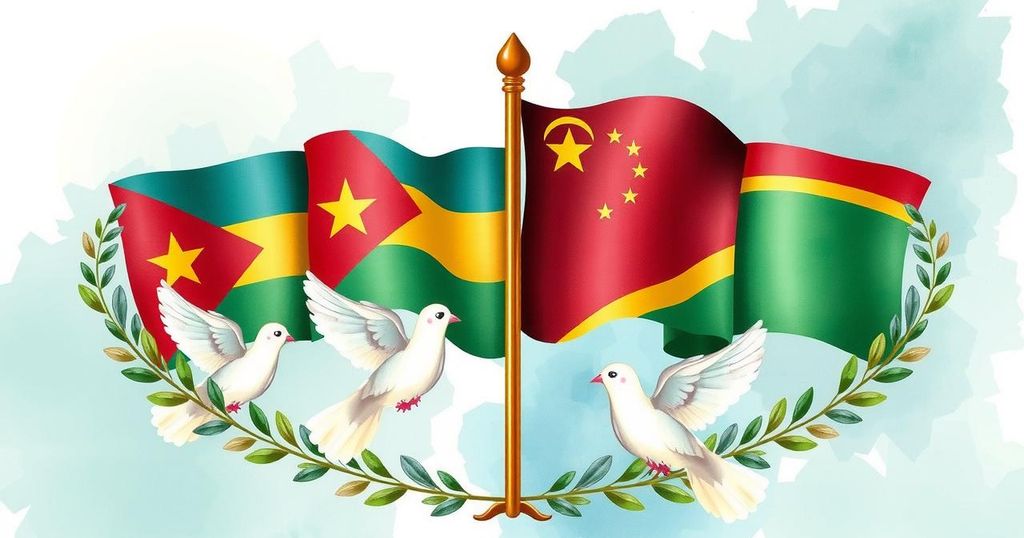Mozambican President Daniel Chapo and several political parties signed an agreement aimed at resolving post-election crises. The agreement was supported by major parliamentary and extra-parliamentary groups, emphasizing the importance of political unity for the country’s stability and democratic progress.
On March 6, Mozambican President Daniel Chapo, along with the country’s principal political parties, formalized an agreement aimed at addressing a post-election crisis. This agreement was the product of a political dialogue and was signed in Maputo, the capital, by key parliamentary parties such as the ruling Mozambique Liberation Front (Frelimo) and the main opposition, as well as extra-parliamentary groups.
During the ceremony, President Chapo emphasized the importance of unity, stating that it is crucial to prioritize the nation’s interests over political differences. He asserted that this agreement signifies the parties’ trust in the government’s capability to foster political, economic, and social stability. Chapo also remarked on the significant implications this commitment has for peace and democracy in the southern African region, acknowledging the attendance of representatives from neighboring governments.
Albino Forquilha, leader of the opposition party Podemos, highlighted the agreement’s role in opening pathways for new opportunities in Mozambique. He stressed that fostering consensus among the political entities is essential to effectively tackle the recurrent issues affecting the nation. Forquilha also noted that the conditions established by the agreement facilitate meaningful dialogue among various political actors and civil society to promote a united Mozambique.
The extra-parliamentary signatories who supported the agreement include Nova Democracia (ND), the National Reconciliation Party (Parena), the Social Renewal Party (Pareso), the Mozambican Humanitarian Party (Pahumo), and the Democratic Revolution (RD). This coalition reflects a multifaceted approach to addressing the political challenges facing the country.
The agreement signed by Mozambican political parties marks a pivotal moment in the effort to resolve ongoing post-election issues. By prioritizing national interests and promoting dialogue among diverse political actors, Mozambique aims to strengthen its democracy and societal stability. This commitment, under the leadership of President Chapo and supported by various political groups, lays the groundwork for a collaborative future aimed at unity and progress in the nation.
Original Source: www.socialnews.xyz






